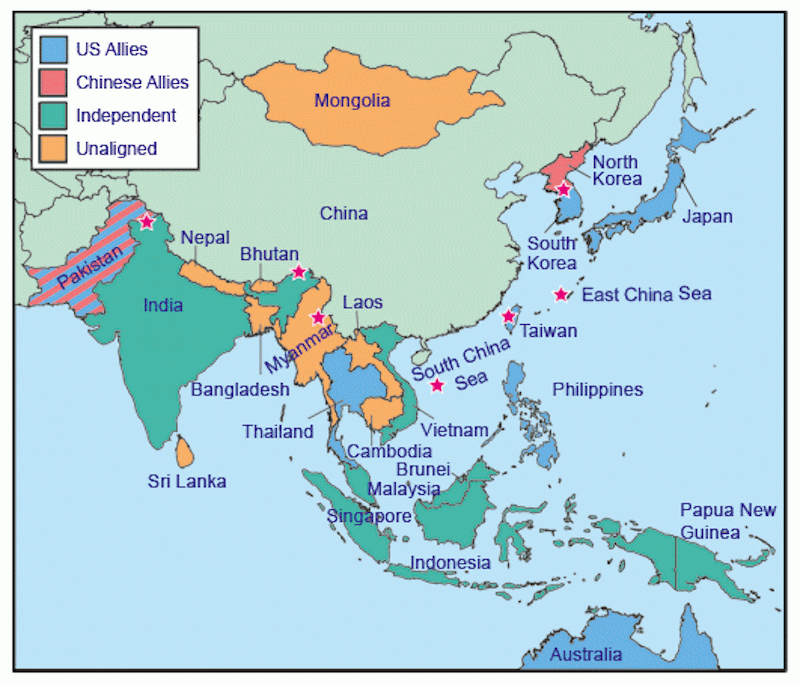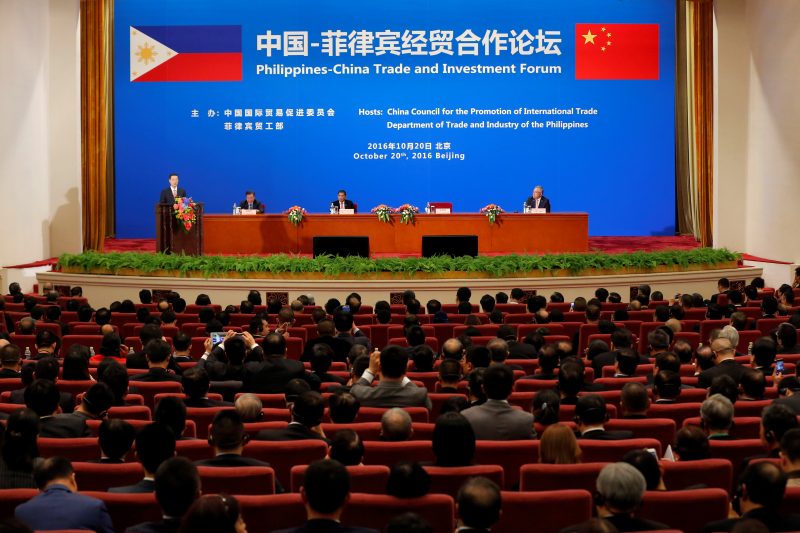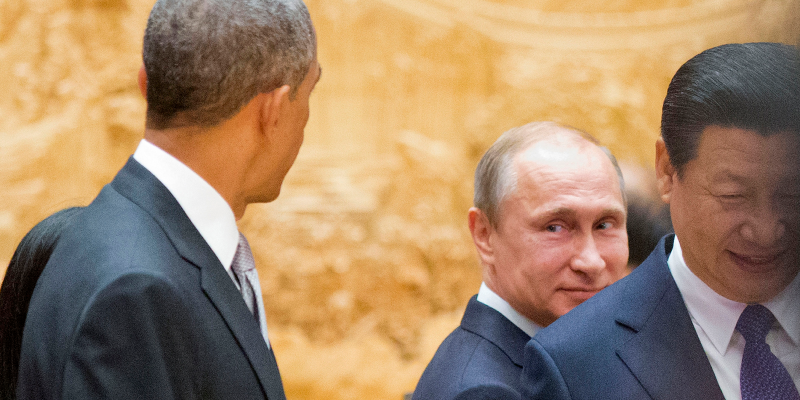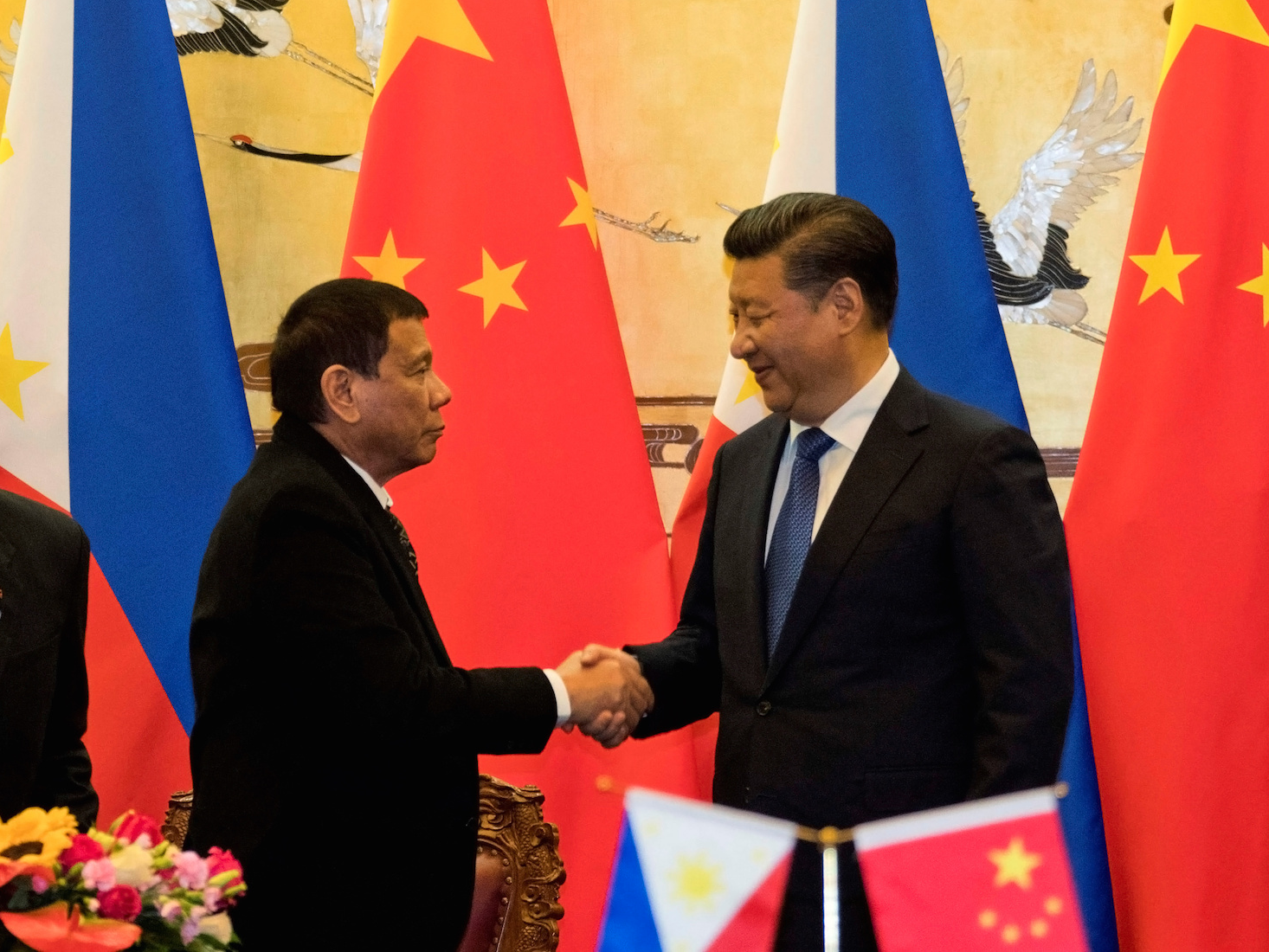During his first official trip outside of Southeast Asia as head of state this week, Philippine President Rodrigo Duterte announced his “separation” from the United States.
“America has lost now,” Duterte told Chinese and Philippine business people at a forum in the Great Hall of the People, attended by Chinese Vice Premier Zhang Gaoli.
“I’ve realigned myself in your ideological flow and maybe I will also go to Russia to talk to (President Vladimir) Putin and tell him that there are three of us against the world – China, Philippines and Russia. It’s the only way.”
(On Friday, he clarified his comments, saying that this “is not a severance of ties,” but rather he wants to pursue a “separation of foreign policy” by strengthening relations with China.)
This wasn’t the first time Duterte has used fiery language with respect to the US: he previously called president Barack Obama a “son of a bitch” and told him to “go to hell.”
Still, the so-called pivot to China was more dramatic than some had expected, coming just months after a Hague tribunal ruled in favor of the Philippines in its South China Sea dispute with China, and is a complete change-up from predecessor Benigno Aquino's diplomatic positioning.
And there's an underlying pragmatic reason as to why Duterte has played his cards this way: given that his main priorities are development and growth, he wants economic, trade, and investment benefits from China, as a BMI team noted in a recent note to clients.

In recent years, the Philippines had been excluded from China's charity as relations between the two nations soured after theScarborough Shoal incident in 2012. But then on Thursday, the Chinese foreign ministry announced that the two countries signed numerous bilateral cooperation documents, and added that China "is willing to actively take part in the building of the Philippine railways, city rail transport, highways, ports and other infrastructure which will benefit the local people," among other things.
Moreover, Duterte is likely keen to see some international support for his war on drugs, which has left nearly 2,300 people dead since July, both at the hands of police as well as in unexplained circumstances, according to official data. The crackdown has been criticized by the US, but China expressed support for it last week ahead of Duterte's visit.
Plus, for what it's worth, Reuters reported that "China has pulled out all the stops to welcome Duterte, including a marching band complete withbatton-twirling band master at his official welcoming ceremony outside the Great Hall of the People, which most leaders do not get."
"Beijing [...] has reciprocated cordially towards Manila's foreign policy shift and is rewarding the latter for its diplomatic efforts," the BMI team wrote.

It's also notable that the Philippines' flip comes at a time when things are starting to heat up between China and its neighbors, and the US continues to pursue greater influence in Asia.
"As a result, the US will likely have to increasingly cultivate Vietnam as a regional security partner to partially offset the withdrawal of the Philippines from an informal US-led bloc of Asian nations aimed at counter-balancing China's rise," argued the BMI team.
They continued:
"Dating back to 1951 when the two sides signed a Mutual Defense Treaty, the Philippines has been a traditional and important US defence ally in the Asia Pacific region due to its strategic location between the South China Sea and the western Pacific Ocean, both of which are vital to international trade. The Philippines is also a key element of the so-called 'first island chain' running from southern Japan and Taiwan down to the South China Sea, which the US formulated in the Cold War to contain the USSR and China. As such, the abandonment of the US-led network of alliances by the Philippines serves as a severe blow to Washington's 'first island chain' strategy."

One other interesting side detail was Duterte's shout-out to Putin and Russia, which is not a huge influencer in South East Asia.
"Duterte's reference to develop closer ties with Russia is likely to be his way of signaling to the US that he is willing to befriend countries that are opposed to Washington as part of his foreign policy rebalancing," suggested the BMI team.
"Alternatively, Duterte may have mentioned Russia as a hedge against China, given that the latter still has some unresolved maritime disputes with the Philippines."

